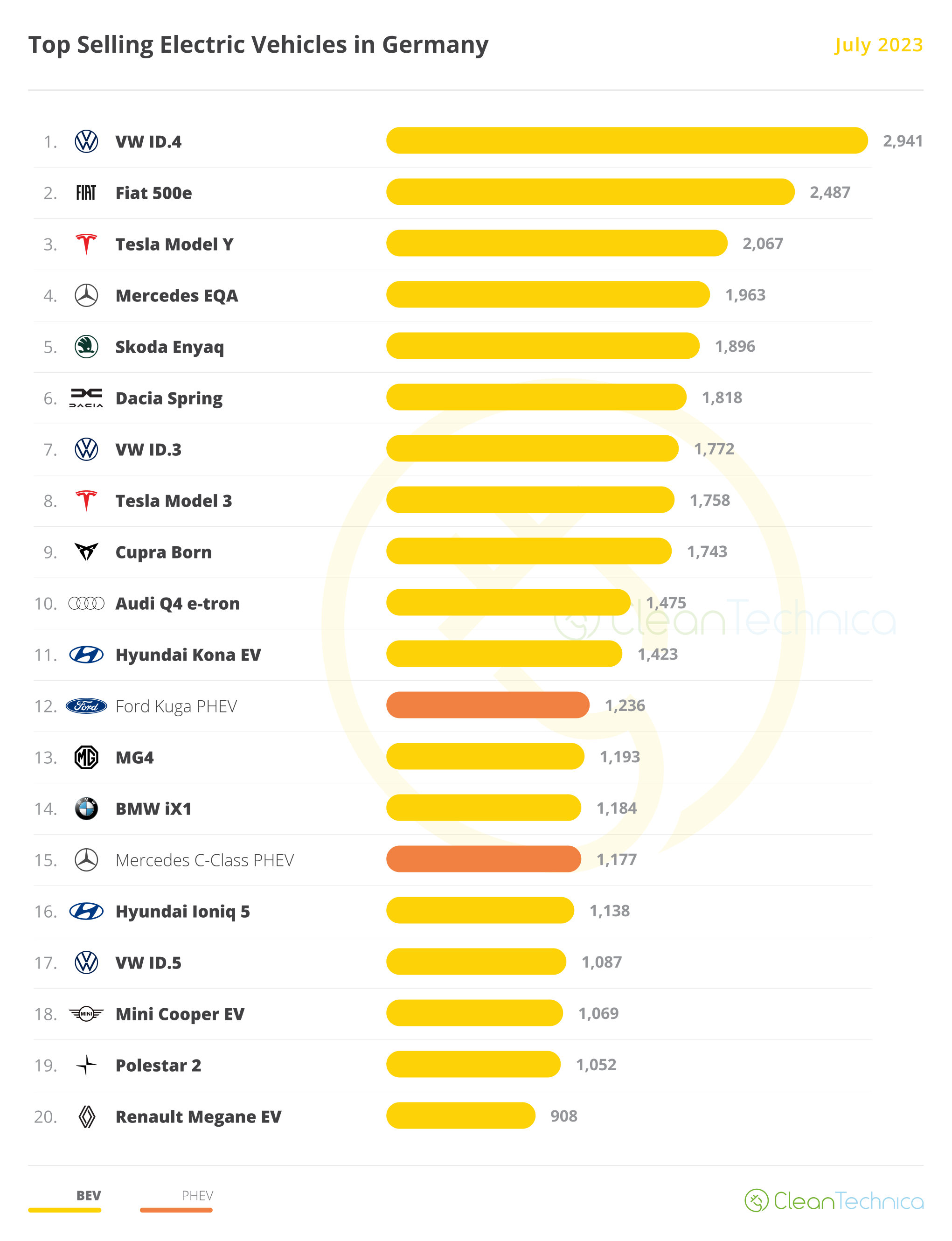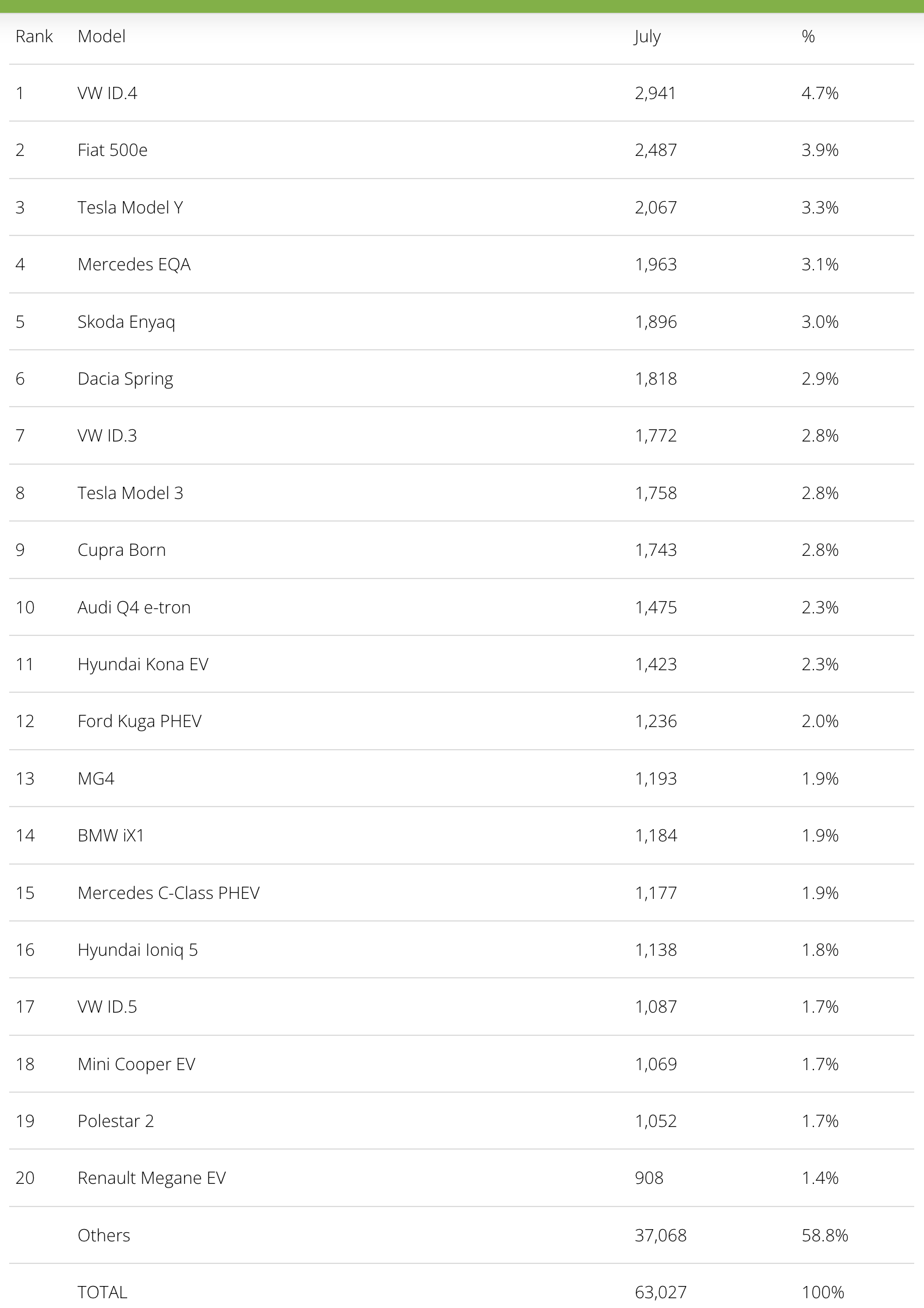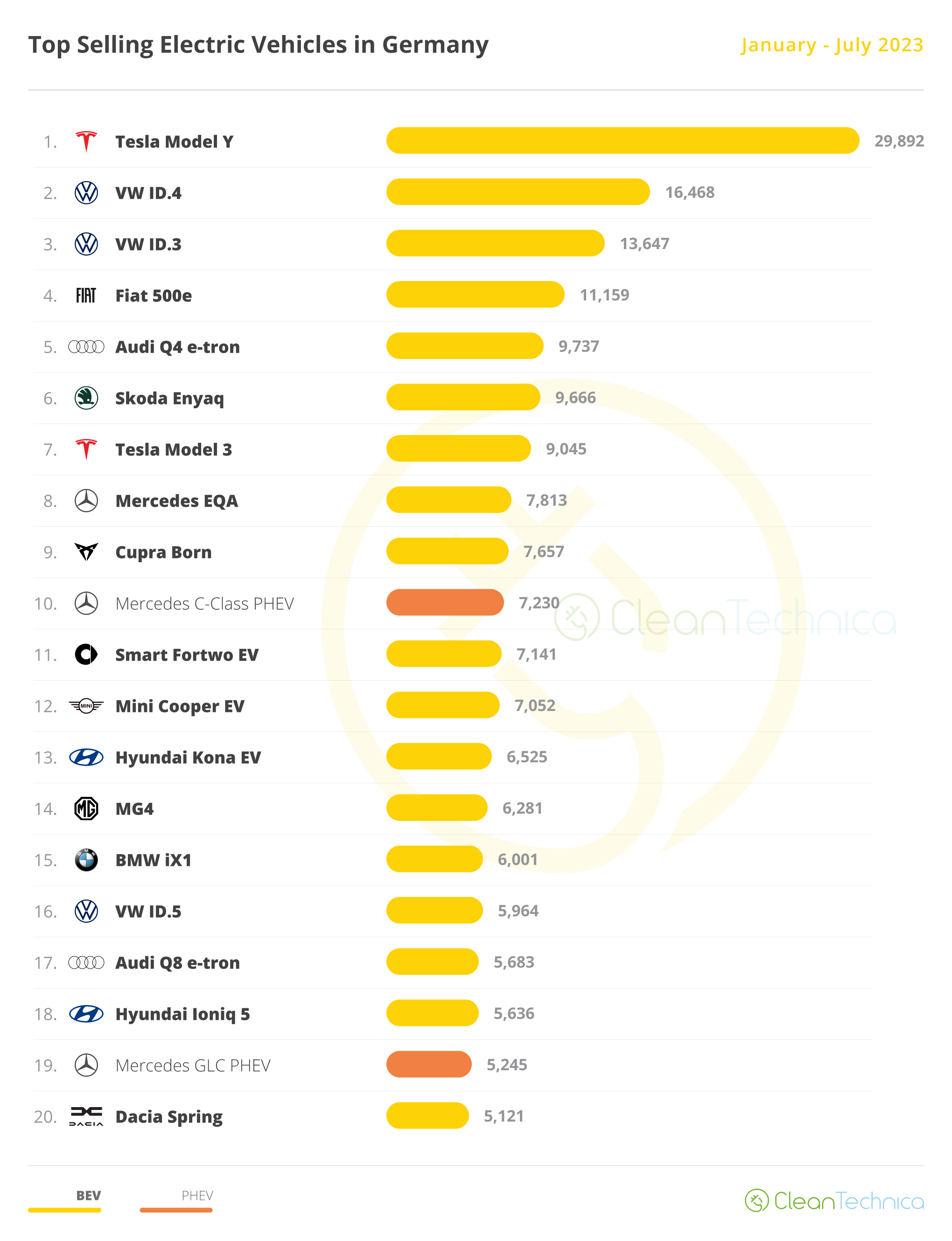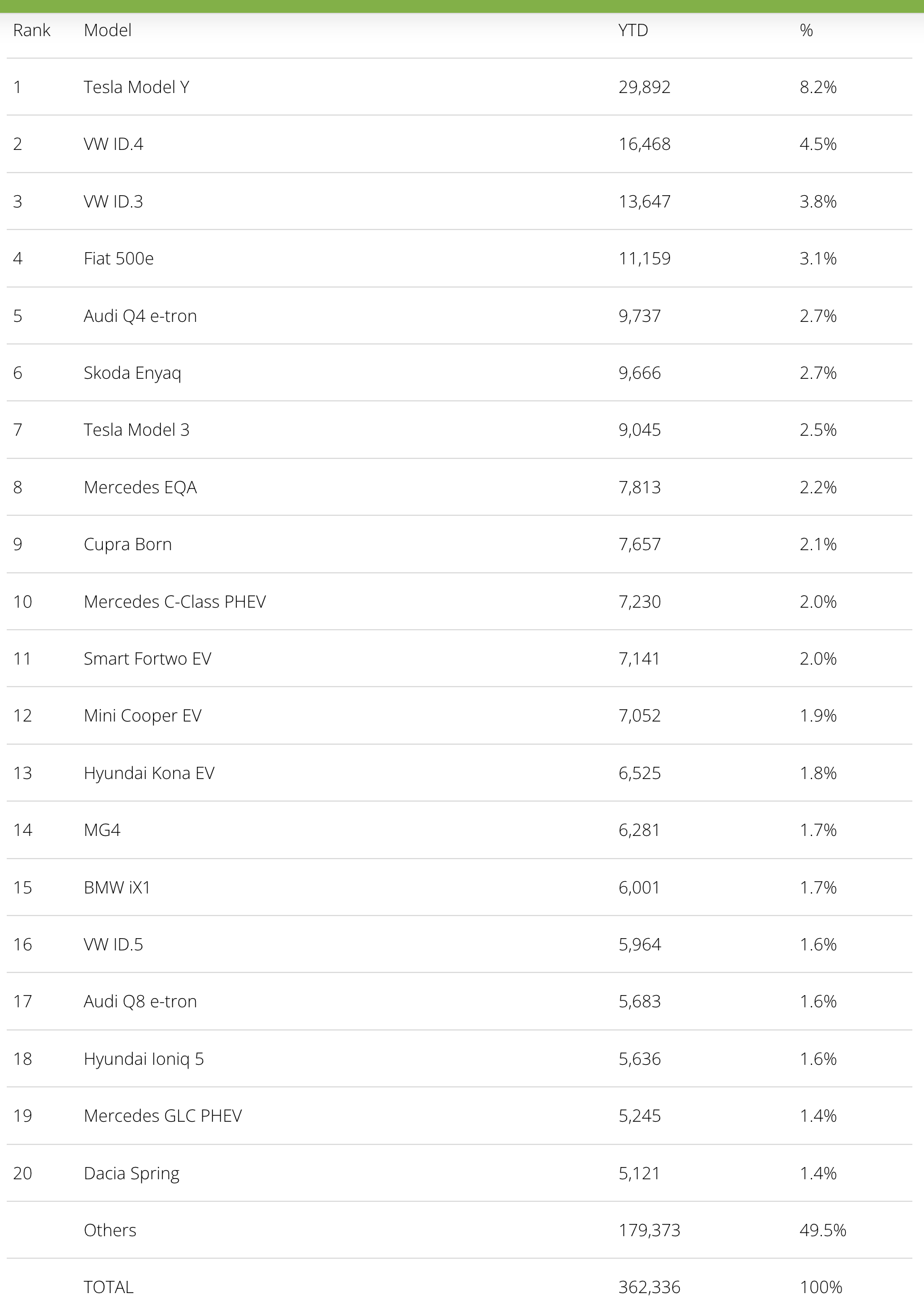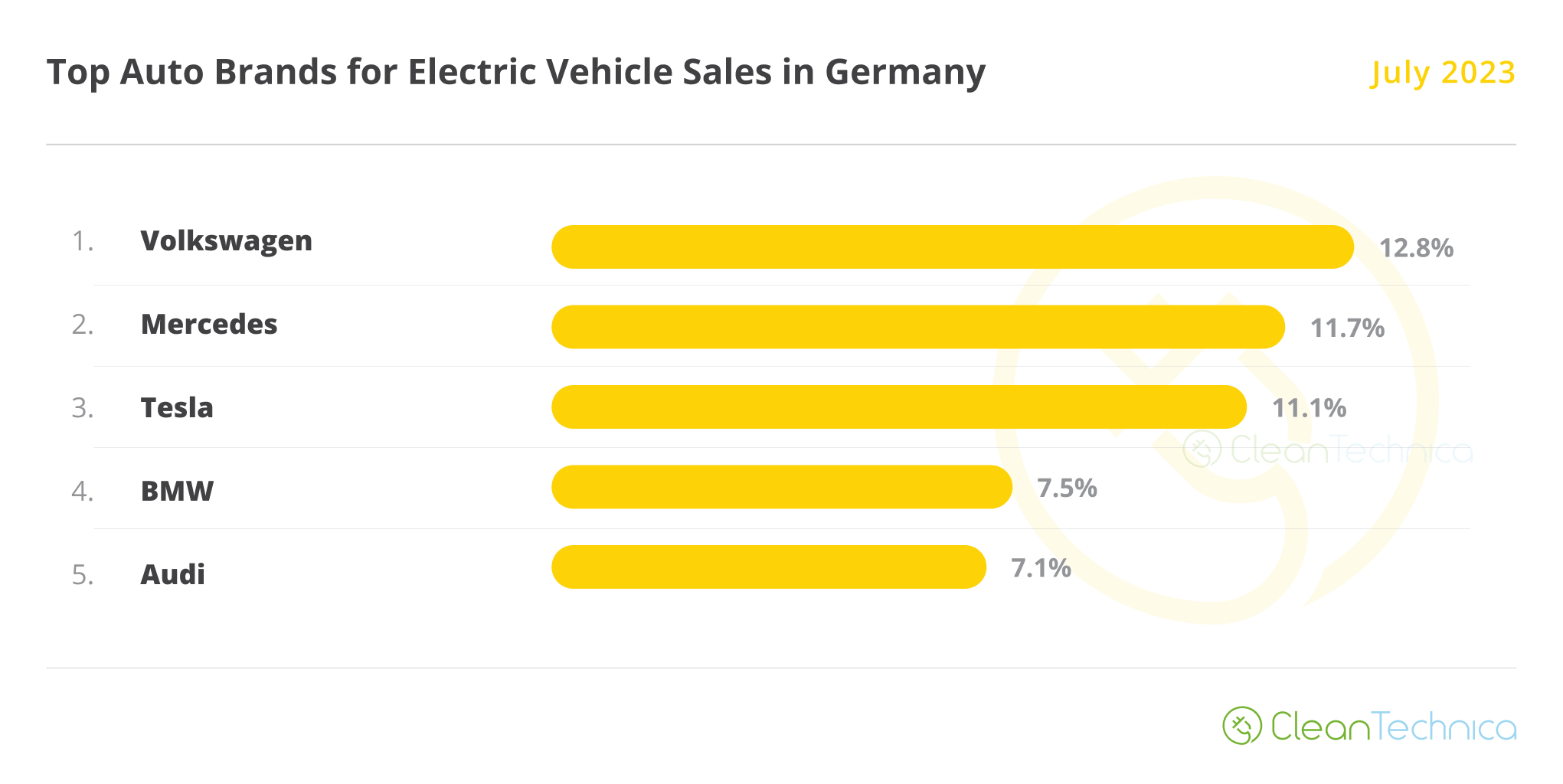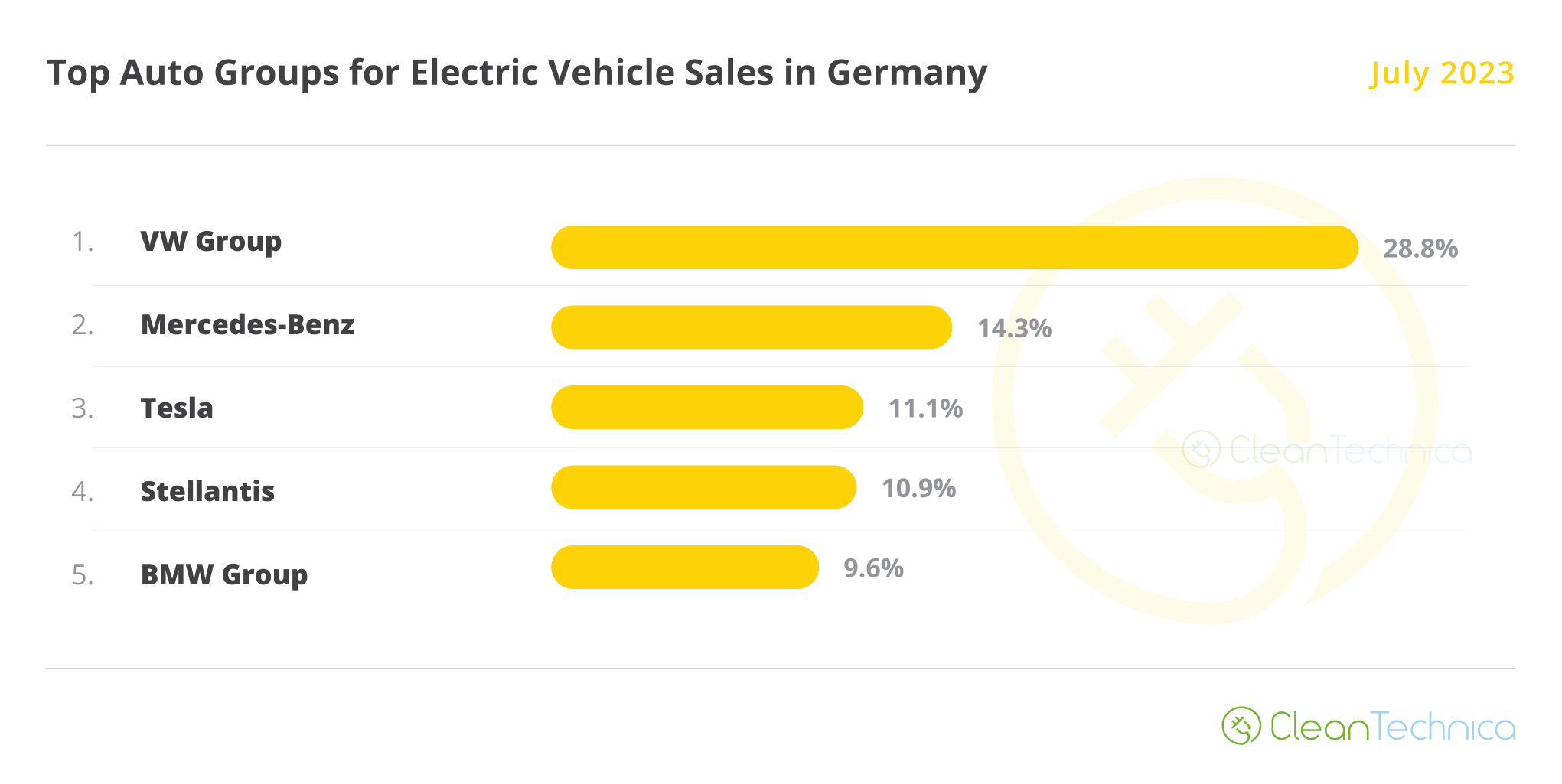
The overall German auto market had another positive month in July (+18% year over year), with BEVs being the highlight (+69% YoY, their highest growth rate this year). It’s an impressive result, especially considering that we are in the middle of the summer holiday season. That indicates we might be headed for a record month in September.
There were 48,682 BEV registrations last month, 20% of the overall market. While BEVs were up 67%, PHEVs were down 37%. The latter are still suffering from the end of federal incentives. In July, PHEVs had 14,345 registrations, or 5.9% of the total market, which is approximately half of what they had a year ago. That is visible in the BEV vs. PHEV sales breakdown, too, with pure electrics representing 77% of all plugin sales in July, 3% above this year’s average and much more than the 55% share of a year ago.
July’s 26% share pulled the year-to-date score to 22% (16% BEV). A 25–30% result by year end could be not only possible, but is likely.
The 20 Best Selling Electric Vehicles in Germany — July 2023
The VW ID.4 benefited from the Tesla Model Y’s off-peak month and won July’s Best Seller trophy, with 2,941 deliveries. It was #1 in the plugin table for the first time since April.
Highlighting Volkswagen Group’s current all hands on deck attitude in Germany, the German conglomerate placed five models in the top 10, with the highlight being the #9 Cupra Born, which had 1,743 registrations, a new year best.
Incidentally, in what could have been a slow month, because of the holiday season, there were several models with year-best results in July, and even record scores!
Besides the aforementioned Cupra Born, the Dacia Spring surprised everyone by surging into #6, with 1,818 registrations, its best result in 2023. Hyundai’s Ioniq 5 got 1,138 registrations and the Kona EV got 1,423 registrations. This last one’s performance is even more impressive when we consider that the small crossover is about to give way to a new-generation Kona.
But the highlight is the Mercedes EQA, which reached a record 1,963 registrations last month. This proves once again that the three-pointed-star make takes its time to ramp up its BEVs (the EQA has been on sale since the second half of 2020).
In another sign of the disruptive and historical times we are living in, there were only two PHEV models on the table — and only one of them coming from the Mercedes stable, with the C-Class PHEV showing up at #15 (with 1,177 registrations). The other was the company-car friendly Ford Kuga PHEV, which ended the month in #12, with 1,236 registrations, a new year best.
A final note goes out to the presence of the Polestar 2, in #19 with 1,052 registrations, also a new year best.
Outside the top 20, unlike what is usual in this time of year, there is a lot to talk about, the highlight being the Jeep Avenger EV’s first volume month, with 902 deliveries. That put it just 6 units below the #20 Renault Megane EV, which says a lot about the potential of the little Jeep. It is showing enough potential to be top 20 material, and easily the best selling small crossover in the Stellantis stable. To be continued….
Speaking of Stellantis, Opel had a good month, with solid performances from the Corsa EV (759 units) and Mokka EV (692 units) while the BEV version of the Astra (342 units) was starting to reach dealerships. Overall, the hatchback (and station wagon …) had a record performance in Germany of 561 units (including 219 PHEV units).
Elsewhere, we should highlight BYD’s Atto 3 (Yuan Plus in Euro-speak), which had its first volume month in Germany — 367 units. Hyundai’s Ioniq 6 baby Porsche also had a record month, with 695 registrations. The Renault Twingo EV (616 registrations), VW ID.Buzz (536 registrations), and Peugeot e-2008 EV (520 registrations) all had year-best performances, with the little Renault surprising a little bit more than the others, considering that it is an exiting model and Renault isn’t really investing much in it.
Looking at full size models, the big news is the landing of the BMW i5, with a significant 252 registrations, which could mean that the leaders, the Audi Q8 e-tron (597 registrations in July) and Porsche Taycan (569 registrations), could face some real competition from now on.
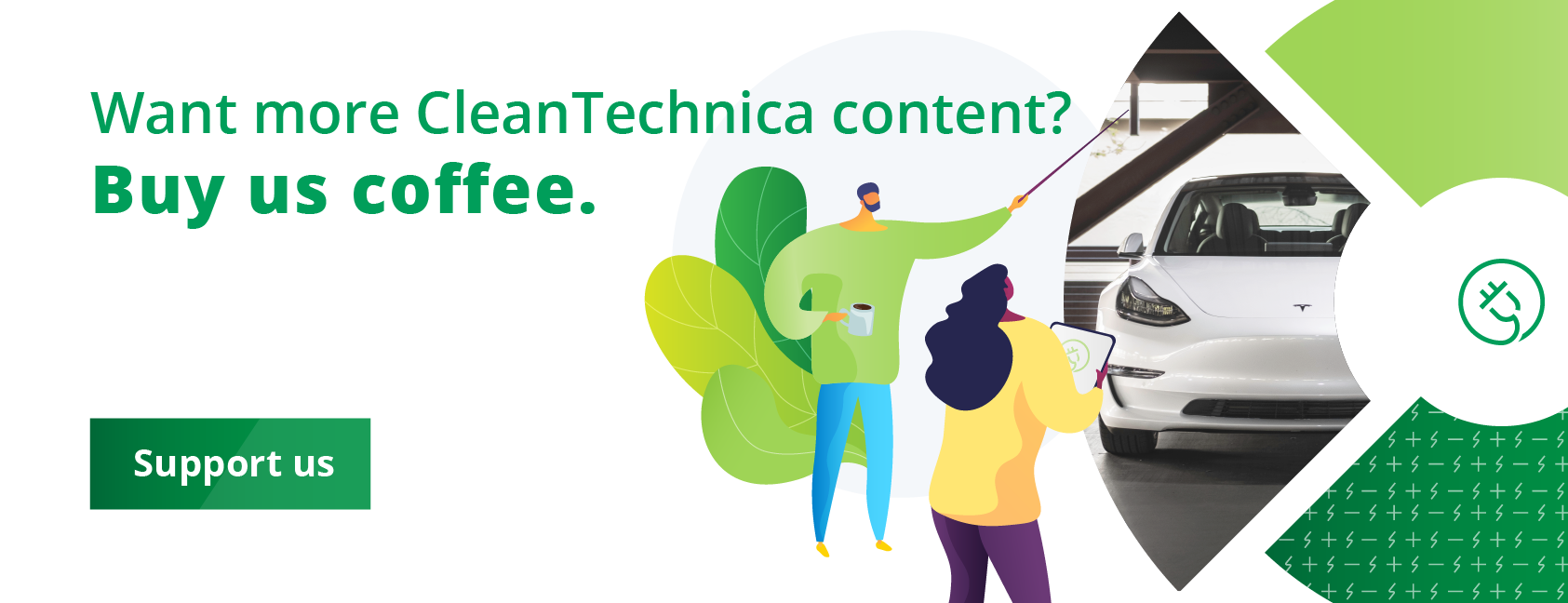
The 20 Best Selling Electric Vehicles in Germany — January–July 2023
Regarding the 2023 table, the Tesla Model Y sits well above everyone else, with a 13,000-unit advantage over the runner-up VW ID.4. This is a disruptive performance for a foreign model in German lands — not only in the EV category, but also in the mainstream market.
Still, this impressive performance from the Model Y is only part of the story of its current (good) EV moment in Germany.
Volkswagen Group is also playing its cards, placing four models (the VW ID.3, VW ID.4, Audi Q4 e-tron, and Skoda Enyaq) in the top six positions, all of them experiencing surging sales. All while the spicy Cupra Born was up to 9th in July, thus being the 5th MEB-platform model in the top 10.
So, while Tesla is making the best use of its star player, the Model Y, the German OEM is profiting from a long (and strong) lineup of team players.
But, while Volkswagen Group is defending its marbles in its domestic market, Mercedes is also doing its bit, with the Mercedes EQA jumping four positions. The the compact crossover is now the best selling Mercedes in the table, displacing the Mercedes C-Class PHEV and becoming the first BEV model from the brand to beat its PHEV siblings in the sales table. The times, they are A-changin’… (even at Mercedes).
The wind of change is also blowing at BMW’s HQ, with the iX1’s conventional lines (well, comparing to the XM abomination, every other BMW seems conventional) starting to appeal to customers, allowing the compact crossover to jump into #15. Although still far from the 8th position of the arch-rival Mercedes EQA, and further behind the feats of the BMW i3’s past glory* (and future classic), this is allowing the Bavarian maker to hold its own and forget that the BMW i4 is absent from the top 20. (*The BMW i3 was the best selling EV in Germany in 2014 and 2016.)
Still on the YTD table, we have a new face in the table, with the Dacia Spring returning to the best sellers table last month thanks to a surprisingly good July.
On a different note, a year ago, we had six PHEVs in the table, whereas now the tally is reduced to just two. And maybe there will be just one representative soon, as the #19 Mercedes GLC could be replaced soon. #Incentivesmatter
Auto Brands Selling the Most Electric Vehicles in Germany
In the brand ranking, leader Volkswagen (12.8%, down from 13%) gained some ground in the front, thanks to Tesla’s expected off-peak drop (down 1.1%, to 11.1%). This even allowed Mercedes (11.7%) to climb into second position, switching places with Tesla. The three-pointed-star brand currently benefits from a good balance between BEV and PHEV sales, where it is now the category king. But do not expect this standing to stay like this for long, because as the quarter end nears, Tesla will no doubt bounce back and return to the runner-up position.
BMW (7.5%) stayed in 4th, benefitting from a significant drop from #5 Audi (7.1% in July, dropping from 7.4% in the previous month). Interestingly, and still far from the top 5, a rising Hyundai (4.9%) is the new 6th best selling brand — thanks to good performances from the Kona EV and the Ioniq 5 & 6. Will the Korean be able to threaten Audi or BMW in the future?
Auto Groups Selling the Most Electric Vehicles in Germany
Looking at the rankings by OEM, Volkswagen Group has its domestic market well in hand with 28.8% share. This is despite a 0.4% share drop in July. Volkswagen Group is followed at a distance by Mercedes-Benz (14.3%, down from 14.7%) and Tesla (11.1%) far behind.
Stellantis is 4th, with 10.9% share, having gained 0.5% share in July thanks to the good performances of Jeep and Opel. In 5th is BMW Group at 9.6%.
Below them, #6 Hyundai–Kia (7.7%, up from 7.3%) is the only OEM close enough to hope for a top 5 presence in the near future.
I don’t like paywalls. You don’t like paywalls. Who likes paywalls? Here at CleanTechnica, we implemented a limited paywall for a while, but it always felt wrong — and it was always tough to decide what we should put behind there. In theory, your most exclusive and best content goes behind a paywall. But then fewer people read it! We just don’t like paywalls, and so we’ve decided to ditch ours. Unfortunately, the media business is still a tough, cut-throat business with tiny margins. It’s a never-ending Olympic challenge to stay above water or even perhaps — gasp — grow. So …

